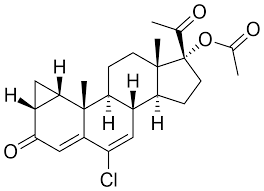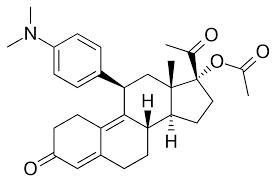EMA has released some drug safety updates in its recent Issue 133 April 2020. The safety topics discussed below based on their therapeutic areas.
Meningioma risk associated with cyproterone use:
Cyproterone is an antiandrogen (blocks the action of androgens, a type of sex hormone found in both men and women) and progestin medication (blocking the action of progesterone) used in the treatment of various androgen-dependent conditions such as prostate cancer, excessive hair growth (hirsutism), hair loss (alopecia), early puberty, lack of menstrual period and acne. This medicine also used as contraception and in hormone replacement therapy.

Meningioma is a rare tumour (non-malignant tumour) of the membranes surrounding the brain and spinal cord. It is not considered to be a cancer, but due to their location in and around the brain and spinal cord, meningiomas can cause serious problems.
EMA identified the risk of the tumour meningioma with cyproterone as ‘rare’ based on the available scientific evidence which may affect between 1 and 10 in 10,000 people which again depends on the dose and duration of treatment. The risk increases with increasing the dose of the total amount of medicine for a patient over a period.
EMA recommendations
For Health care professionals:
- Restricting use (contraindication) of cyproterone products in patients with meningioma or history of meningioma.
- Monitoring of patients by health care professionals for occurrences of symptoms of meningioma, which can include changes in vision, hearing loss or ringing in the ears, loss of smell, headaches, memory loss, seizures or weakness in arms and legs.
- Permanent discontinuation of cyproterone if a patient is diagnosed with meningioma.
For Patients:
- The risk of meningioma from medicines containing cyproterone is very low which occurs especially when the medicines are taken at high doses (25 mg daily or more).
- This medicine should only be used for reduction of sex drive in sexual deviations in men when other treatment options are not suitable.
- There is no change in the use of cyproterone medicines for prostate cancer. To consult respective physician or pharmacist for any queries about cyproterone treatment and safety information.
For Sponsors: Marketing Authorization holders (MAH) of cyproterone in Europe should conduct a study to assess doctor’s awareness of the risk of meningioma and implementing proper risk minimizing procedures as part of ongoing safety surveillance of the cyproterone product.
Liver injury risk with Ulipristal acetate:
This potential safety concern is under ongoing safety review by EMA for assessing the risk of liver injury associated with Ulipristal acetate use.
Ulipristal acetate (Esmya 5 mg) is a progesterone receptor antagonist (also partial agonist) currently approved in the Europe for the pre-operative treatment of moderate to severe symptoms of uterine fibroids in adult women of reproductive age, intermittent treatment of moderate to severe symptoms of uterine fibroids in adult women of reproductive age who are not eligible for surgery. This medicine is also used for emergency contraception (birth control).

Signal detection: Based on four case reports pertaining to liver injury due to exposure to ulipristal acetate which requiring liver transplantation.
In 2018, EMA’s Pharmacovigilance Risk Assessment Committee (PRAC) initiated a review on ulipristal acetate safety due to reports of serious liver injury.
Risk minimisation measure: To minimise the risk, following actions were initiated and implemented:
1. Restricted use – ulipristal 5 mg was restricted to patients with hepatic impairment.
2. Recommendations – To perform regular liver function tests for continuous monitoring of the liver enzymes.
In December 2019, EMA received a new case of serious liver injury leading to liver transplantation following treatment with ulipristal acetate. In view of the seriousness of this case and its occurrence despite adherence to the risk minimisation measures implemented in 2018. EMA initiated analysis of benefit risk balance for this medicinal product.
In March 2020, EMA suspended use of ulipristal acetate 5 mg-containing products while a review of the benefits and risks of these products is ongoing and temporarily withdrawn this medicine form the European market during the ongoing review.
Advise to Health care professionals & Patients:
- Doctors should not initiate any treatment with ulipristal acetate for new patients.
- To discontinue ulipristal acetate for patients who are already under treatment.
- Monitoring of liver performance, analysing liver enzymes should be done within 2-4 weeks after treatment discontinuation.
- Health care professionals and patients are advised to monitor/observe for any unusual signs and symptoms after treatment with ulipristal acetate
- Signs & symptoms for liver injury included nausea, vomiting, right hypochondrial pain, anorexia, asthenia and jaundice which could occur after treatment discontinuation.
- Both Patients and Health care professionals are strongly advised to voluntarily report any suspicion of liver injury and other adverse events after exposure to ulipristal acetate to national spontaneous reporting system.
Drug Safety concerns under Evaluation:
EMA initiated review of safety data for Ifosfamide solutions to examine to examine whether there is a higher risk of encephalopathy (brain disorder).
EMA has started a review of leuprorelin medicines safety data for the medication error concern (handling errors with the products during preparation and administration which cause some patients to receive insufficient amounts of their medicine, thus reducing the benefits of treatment).